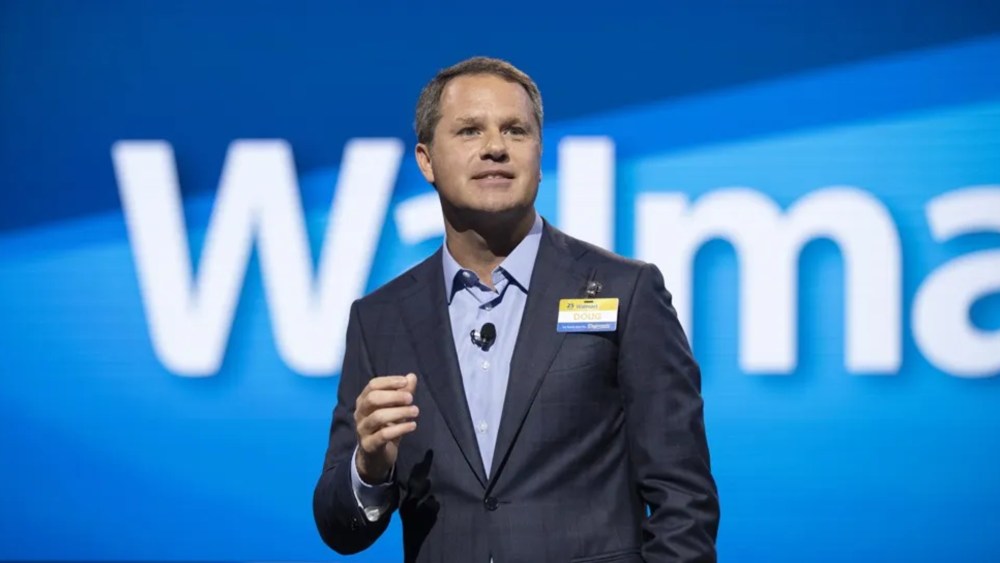Participants at the Wednesday morning event in Arkansas voted on a series of shareholder proposals and struck them all down. A workplace safety and violence study, a racial equity audit, a set compensation policy, a report on respecting civil liberties, publishing human rights impact assessments, a corporate financial sustainability report and a timeline to transition away from gestation crates in its pork supply chain were among the measures that were struck down. The Walmart board had opposed all of the shareholder proposals in its proxy statement.
During the meeting, Rob Walton, who has retired after 40-plus years as a member of Walmart’s board of directors, was saluted for his positive impact on staffers and shoppers by the company’s chairman Greg Penner.
Approximately 91 percent of all shares were represented at the meeting, according to Walmart.
Prior to the annual meeting, Walmart said it was putting in place an hourly bonus program that takes into account tenure as well as performance. Walmart’s average hourly wage is close to $18 — for Walmart U.S. store employees, it is $17.19; for Sam’s Club, it’s $18.29 and for its supply chain, it is $26.42.

As for any plans to expand markets, McMillon said there are no such plans at this time.
Returns improved by more than 200 basis points and the retailer finished up the year with “inventory down, in stock and in a good position,” according to McMillon. In addition, the 9 percent increase in the annual dividend to 83 cents per share that was announced in February was the chain’s largest increase in more than a decade.
“We continue to believe that we can, one, grow sales, because we’re positioned to serve people however they want to shop. Two, grow profits faster than sales, while delivering low prices and investing in our associates, due to our improving business mix. And three, improve our return on investment as we grow profits and make capital investments in the right areas. We’re delivering on those three objectives,” McMillon said.

Describing the company as a “a people-led, tech-powered, omnichannel retailer that is dedicated to helping people save money and live better,” McMillon said the company continues “to make investments in our associates as we strive to help them build their careers. We’re pleased that more than 700,000 associates participate in our 401k plan, and over 440,000 participate in our share purchase plans.”
Referencing how Walmart had split its stock three-for-one earlier this year, McMillon said that was to encourage more associates to take part in its associates’ stock purchase plan. That has led to a 7 percent increase since the split was announced. Walmart is also offering annual share grants for U.S. store employees, as well as ones at Sam’s Club and supply chain facility leaders. Between 2021 and 2026, Walmart will have invested $1 billion to help associates without [them] having to pay for tuition, books or fees,” according to McMillon.

Tech investments are being made for supply chain automation to help flow inventory “more accurately,” the Walmart leader said. And generative AI is being used to improve search on the company’s apps and sites. Globally, the company will remodel more than 900 stores and clubs this year.
McMillon also said that last year Walmart and its foundation gave more than $1.7 billion in cash, food and products in the community that it served.
During the Q&A portion of the annual meeting, McMillon said the war in Ukraine has not impacted business aside from some minor supply chain issues, “but they are being managed effectively.”
Shareholders approved the election of Walmart’s 11 director nominees, including Brian Niccol, chairman and CEO of Chipotle Mexican Grill. They also voted to approve, on a nonbinding, advisory basis, the compensation of Walmart’s named executive officers. In addition, shareholders ratified the appointment of Ernst & Young LLP as Walmart’s independent accountants.


